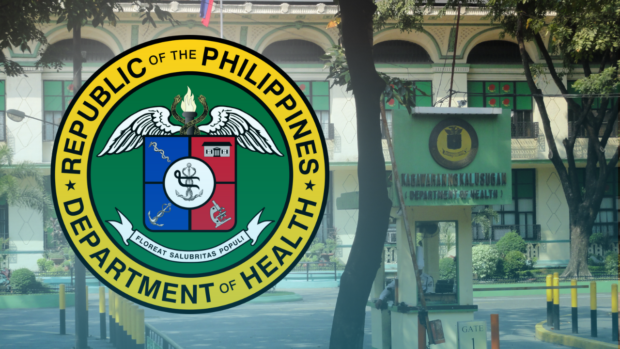
Department of Health. INQUIRER FILES
MANILA, Philippines — The Department of Health (DOH) said it would “reassess” policies on pandemic response in the country after the World Health Organization (WHO) declared on Friday that COVID-19 is no longer a global health emergency.
In a statement on Friday night, the health department welcomed the lifting of the WHO’s “public health emergency of international concern,” the highest level of alert that had been in force since Jan. 30, 2020.
“The DOH will convene the members of the Inter-Agency Task Force for Emerging Infectious Diseases (IATF) to discuss and reassess policies and other guidelines affected by the declaration,” it said in a statement on Friday night.
“All factors in determining our next action in line with the WHO’s proclamation will be considered and discussed for the approval of the President,” it added.
The IATF, chaired by the DOH, is the government’s advisory body on the pandemic response.
Emergency status
The health department also noted that the latest development was an “acknowledgement of our effective and collaborative COVID-19 response and concerted efforts to fully recover and reopen our economy.”
Asked what it would mean to the country’s vaccination program, the DOH would rather not preempt the IATF meeting and said that “more details with regard to our current policies” in the next days.
Just last month, DOH officer in charge Maria Rosario Vergeire shot down the possibility of lifting the public health emergency status of COVID-19 anytime soon.
According to her, certain policies for pandemic response should first be institutionalized because most of the current COVID-19 measures “are tied to the public health emergency status.” This includes the One COVID-19 Allowance, which health-care workers would stand to lose once the emergency status is revoked.
But after meeting with the IATF last week, Vergeire revealed that they are already crafting a “pandemic exit plan” that would be proposed to the President. WHO Director General Tedros Adhanom Ghebreyesus, in a press briefing on Friday, said that the end of the global health emergency status “means it is time for countries to transition from emergency mode to managing COVID-19 alongside other infectious diseases.”
“If need be, I would not hesitate to convene another emergency committee should COVID-19 once again put our world in peril,” he stressed.
In the Philippines, confirmed cases are once again on the rise, although more gradual than in the early years of the pandemic, as COVID-19 continues to spawn new variants.
The latest strain to enter the country is Omicron XBB.1.16, initially found to be more transmissible, but still with a low level of risk.
Active cases
Data from the DOH COVID-19 tracker showed that there were 1,563 fresh cases on Friday, slightly up from 1,190 cases recorded the previous day.
It was the second day that daily infections surpassed the 1,000 level in nearly five months, or since Dec. 22, when the country logged 1,031 new cases.
The latest count pushed active infections to 9,159 and the country’s COVID-19 tally to 4,099,088.